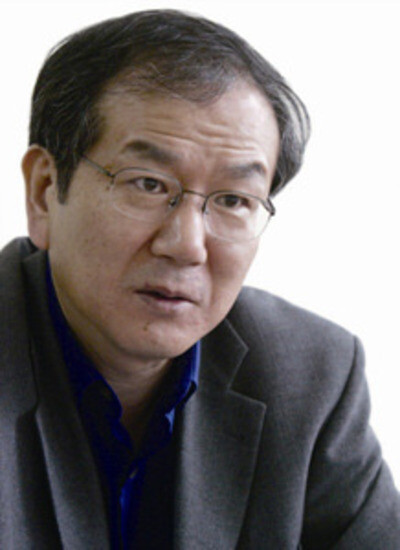hankyoreh
Links to other country sites 다른 나라 사이트 링크
[Column] The dangers of making Japan and the Japanese people the enemy

This is no Thucydides trap, but the trap of government-led nationalism. Without brakes to stop them, Koreans are madly driving into the trap of government-led nationalism. One politician is calling for Tokyo to become a “restricted travel zone” while 150 local government leaders are making a big show of “opposing Japan.” A high-ranking member of the Democratic Party said that “I am calling for the repeal of GSOMIA (the General Security of Military Information Agreement) immediately” and proposed that a statement to this effect be sent to Japan on Aug. 15, the day Japan was defeated in World War II. Sushi has now become a target for attacks, and the lowly standard of Korean politics – now relegated to fighting over the use of sake or cheongju (Korean rice wine) - was again confirmed by the Democratic Party’s recent proposal to reconsider a boycott of the Tokyo Olympics next year.
This kind of nationalism exists with other types in “confrontational” coexistence. Government-led nationalism condemns Shinzo Abe in one voice, but most of the time it actually just helps the Japanese leader. Just like ordinary Korean people were the ones who removed former President Park Geun-hye from office, ordinary Japanese – not Koreans - should be the ones to take down Abe. Instead of creating enemies of the Japanese people, Koreans need to find ways to come together with the Japanese people in solidarity so that they can take things into their own hands.
Unencumbered nationalism can easily turn unwieldy. On Aug. 5, Moon called for the creation of a “peace economy” through inter-Korean economic cooperation as a way to “break through” Japan’s economic attacks. “The advantage Japan’s economy has over us is the size of its (overall) economy and domestic market,” Moon said. “If the South and North could create a peace economy through economic cooperation, we can catch up with Japan’s superiority in one burst.”
Almost as if he had the knowledge that an ordinary person like me would be unfamiliar with the term “peace economy,” Moon then emphasized that “We can achieve peace and shared prosperity on the Korean Peninsula as well as denuclearization if South and North work together under the conviction that a peace economy is a future that is ours alone, something no one country in the world can possess.” Hearing this, a rosy vision of a train travelling through North Korea and across the Eurasian continent flashed before me, but this image quickly disappeared upon realization that the Kaesong Industrial Complex and tourism to Mt. Kumgang are both still dead in the water.
A hasty and compulsive sense of purpose eliminates or distorts the process of rational thought. My admittedly narrow knowledge of economics tells me that the focus of the economy should be on production, not on its scale or the size of the domestic market. I believe that Moon’s statements came from aides who cling to chauvinistic nationalism. That being said, his speech presents a serious issue because of its exceedingly empty-sounding, far-right statements (for example, “[. . .] under the conviction that a peace economy is a future that is ours alone, something no one country in the world can possess”) and other declarations that revealed basic misunderstandings about the workings of the economy. People’s limited knowledge of this – or perhaps because everyone has become enveloped in government-led nationalism expressed through the “12 ships” (led by Yi Sun-sin to fight the Japanese navy in the Myeongnyang Strait), the Jookchang-ga (literally, the “Song of Bamboo Spear,” a popular song during the democracy movement) and the “Righteous Army” (an irregular army that fought the Japanese) - means that Moon has received muted criticism.
It is worth referencing, however, Irving Janis’ concept of “groupthink” to explain the Blue House’s way of making decisions. According to Janis, groupthink is a mode of thinking that people engage in when they are deeply involved in a cohesive in-group that makes them strive for unanimity when a decision is made. Groupthink makes people in groups blindly adhere to an optimistic viewpoint and leads to irrational actions directed toward those outside of that group.
The sense of intellectual and moral superiority of S. Korea’s nationalist left
Personally speaking, I am not educated enough to be an expert, but I take it as one of my fundamental principles not to become a “democratic idiot” armed with feelings of intellectual and moral superiority. South Korea’s road to democratization was extremely difficult. Most of the so-called “[3]86 generation” who were part of that long and difficult democratization movement have a sense of moral superiority over others. That’s natural, of course, given that they fought against the anti-democratic, morally-corrupt dictatorships of Syngman Rhee, Park Chung-hee and Chun Doo-hwan. Most, moreover, have read a couple of ideological texts recommended by their elders and thus have an easy time feeling an intellectual sense of superiority over others as well. They are also nationalists.
It is too much to ask nationalists armed with such intellectual and ethical superiority to self-reflect or question themselves. The hand of a compass may quiver in hesitation before pointing out a direction, but these nationalists don’t hesitate in any way. Korea’s state of division gave nationalists the gift of a majority opinion and has allowed them to dominate all aspects of the civil society movement. They don’t feel the need to study the discourses espoused by their opponents at the Chosun Ilbo or the Liberty Korea Party. That is because the two sides are not part of a relationship where debates and persuasion take place; rather, their relationship is relegated to that of the oppressor and the oppressed.
As soon as these nationalists acquired political power on the back of candlelight demonstrations, they obtained pretty good public sector jobs. Linked closely on a sentimental level, a culture of “we’re all friends” appeared among them. Even while witnessing Moon Jae-in’s pledge regarding public education turn into an empty one, I wonder if their aim to obtain power is less on realizing a political philosophy than providing jobs to one another.
Yang Jung-chul, a confidant of Moon, was put in charge of the Institute for Democracy. As far as I know, the extent of this Democratic Party think tank’s research capability is its conclusion that the South Korea-Japan conflict will serve to benefit the Democratic Party during the parliamentary elections in April 2020.
Fleeting moral satisfaction does not justify long-term economic damage
If you lack talent, at least have the grace to be modest. Perhaps the point is to win some kind of moral victory or make Koreans look better by comparison, but the government-led nationalism we’re seeing is extremely selective, given our willing subservience to the US. Since the Abe administration claims that South Korea is in violation of international law, the Moon administration has known for eight months that Japan might make an economic provocation. But Moon disregarded that, focusing all his diplomatic resources on the Korean Peninsula peace process. And instead of owning up to its negligent response to the crisis in relations with Japan and working to repair those relations, the South Korean government has been fighting back by trying to whip up nationalistic fervor.
But the moral satisfaction of “sticking it to Japan” is fleeting, while the resulting economic tsunami can cause devastating and irreparable harm to the public livelihood. This must be stopped. In the words of one member of the Democratic Party’s Supreme Council, I’m afraid of that “Japan’s political ambition of installing a pro-Japanese government in this country” might actually come true. Despite all my criticism, the current administration is much better than reactionary sell-outs such as the Liberty Korean Party or the Chosun Ilbo. After all, we mustn’t abandon our embattled dreams of building a society that respects its workers and achieving income-led growth; and we mustn’t let Samsung scion Lee Jae-yong, the man who fleeced the national pension fund, be lionized as the person who led South Korea to economic victory over Japan.

Right now, 60-year-old Kim Yong-hui is perched on a tiny landing atop a metal pole in the heart of Gangnam. For more than 60 days, he’s thrown his remaining energy into his protest, despite being physically broken by the Samsung Group’s brutal suppression of his attempts to set up a labor union. Should we really be talking about the human rights of Koreans forced to work for criminal Japanese companies back in the colonial period while leaving Kim to his fate? It’s time we took a good look at ourselves.
By Hong Se-hwa, the CEO of Simple Freedom
Please direct comments or questions to [english@hani.co.kr]
Editorial・opinion
![[Column] The state is back — but is it in business? [Column] The state is back — but is it in business?](https://flexible.img.hani.co.kr/flexible/normal/500/300/imgdb/original/2024/0506/8217149564092725.jpg) [Column] The state is back — but is it in business?
[Column] The state is back — but is it in business?![[Column] Life on our Trisolaris [Column] Life on our Trisolaris](https://flexible.img.hani.co.kr/flexible/normal/500/300/imgdb/original/2024/0505/4817148682278544.jpg) [Column] Life on our Trisolaris
[Column] Life on our Trisolaris- [Editorial] Penalties for airing allegations against Korea’s first lady endanger free press
- [Editorial] Yoon must halt procurement of SM-3 interceptor missiles
- [Guest essay] Maybe Korea’s rapid population decline is an opportunity, not a crisis
- [Column] Can Yoon steer diplomacy with Russia, China back on track?
- [Column] Season 2 of special prosecutor probe may be coming to Korea soon
- [Column] Park Geun-hye déjà vu in Yoon Suk-yeol
- [Editorial] New weight of N. Korea’s nuclear threats makes dialogue all the more urgent
- [Guest essay] The real reason Korea’s new right wants to dub Rhee a founding father
Most viewed articles
- 1Amid US-China clash, Korea must remember its failures in the 19th century, advises scholar
- 2[Column] Why Korea’s hard right is fated to lose
- 3[Column] The state is back — but is it in business?
- 4Trump’s talk of flouting NATO promises sparks apprehension in Seoul
- 560% of young Koreans see no need to have kids after marriage
- 6New sex-ed guidelines forbid teaching about homosexuality
- 7Presidential office warns of veto in response to opposition passing special counsel probe act
- 8[Column] Can Yoon steer diplomacy with Russia, China back on track?
- 9[Guest essay] Maybe Korea’s rapid population decline is an opportunity, not a crisis
- 10[Reporter’s notebook] In Min’s world, she’s the artist — and NewJeans is her art